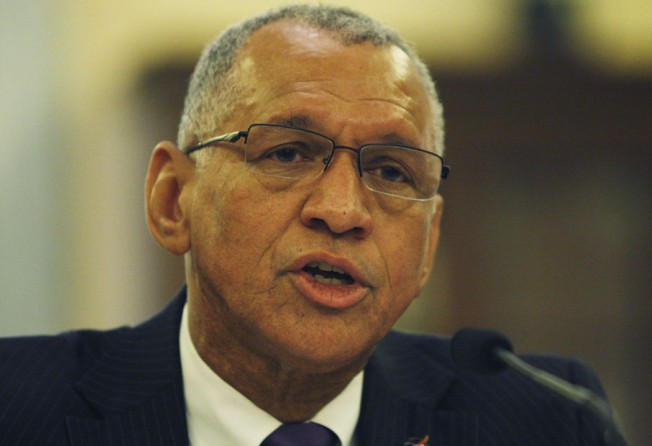Chinese scientists claim EU snub over jobs on nuclear fusion project
In new case of perceived bias, experts say country is not fairly represented on nuclear project in France despite paying its share

While Beijing has criticised Nasa's "discriminatory" decision to bar Chinese researchers from a conference, the country's scientists are fuming over another perceived slight they feel could be far more consequential.
Many Chinese scientists are frustrated over what they see as the country's disproportionately low participation in what has been hailed as one of the world's most important scientific projects: the International Thermonuclear Experimental Reactor (ITER).
Only 4 per cent of the scientists and other staff are Chinese, although the country has pledged 9 per cent of the funding.
"The discrimination against Chinese [at ITER] is an open secret," said Liu Huajun , a nuclear fusion scientist with the Chinese Academy of Sciences' Institute of Plasma Physics (IPP).
The experimental nuclear fusion reactor in Cadarache, France, could potentially deliver clean, safe and inexhaustible nuclear energy one day. Dubbed by some as an "artificial sun", the reactor would mimic the energy-generating process of a star, fusing small atoms into larger ones and harnessing the energy released.
In 2006, China joined six other parties - India, Japan, Russia, South Korea, the European Union and the United States - in a co-operative bid to develop the groundbreaking technology.
Since no party wanted to shoulder the project's initial €10 billion (HK$105 billion) cost on its own, each agreed to put up a share of the money, with the understanding they would be able to send a proportionate share of the scientists and other staffers employed by ITER.
The EU provided the lion's share of the funding, 46 per cent. The other countries, including China, each contributed 9 per cent of the cost, which has since been increased to €16 billion.
As of January, however, only 18 Chinese nationals had been hired to work on the project, or 4 per cent of the 452-strong staff, according to the organisation's website. Most were working in non-core sectors or administration. In contrast, two-thirds of the staff are from European Union. Japan accounts for 7 per cent, India, South Korea and the US 6 per cent each and Russia 5 per cent.
Some Chinese scientists say the result could deprive the country of expertise needed to harness any breakthroughs that come about during the research.
"Even India has sent more people than we do, and India barely provides any significant hardware to the project," Liu said.
Chinese scientists have become increasingly frustrated about their exclusion from sensitive international projects. This week, Beijing criticised the US space agency for barring Chinese representatives from next month's Kepler conference on exoplanets in California.
The US space agency has since vowed to reconsider the applications of Chinese scientists who were denied access to the conference on security grounds.
Nasa administrator Charles Bolden said the situation was "unfortunate" and pledged to take a fresh look at the applications.
The ITER said its hiring process was fair and in keeping with the procedure set by the parties. Spokesman Dr Michel Claessens said allegations of discrimination were "totally false".
Professor Chen Wenge , another IPP fusion scientist who participated in the project at an early stage, said China's expertise in the field had improved dramatically.
Chen blamed the lack of Chinese staff at ITER on officials at the Ministry of Science and Technology, who had not "fought hard enough" to make sure the country was better represented.